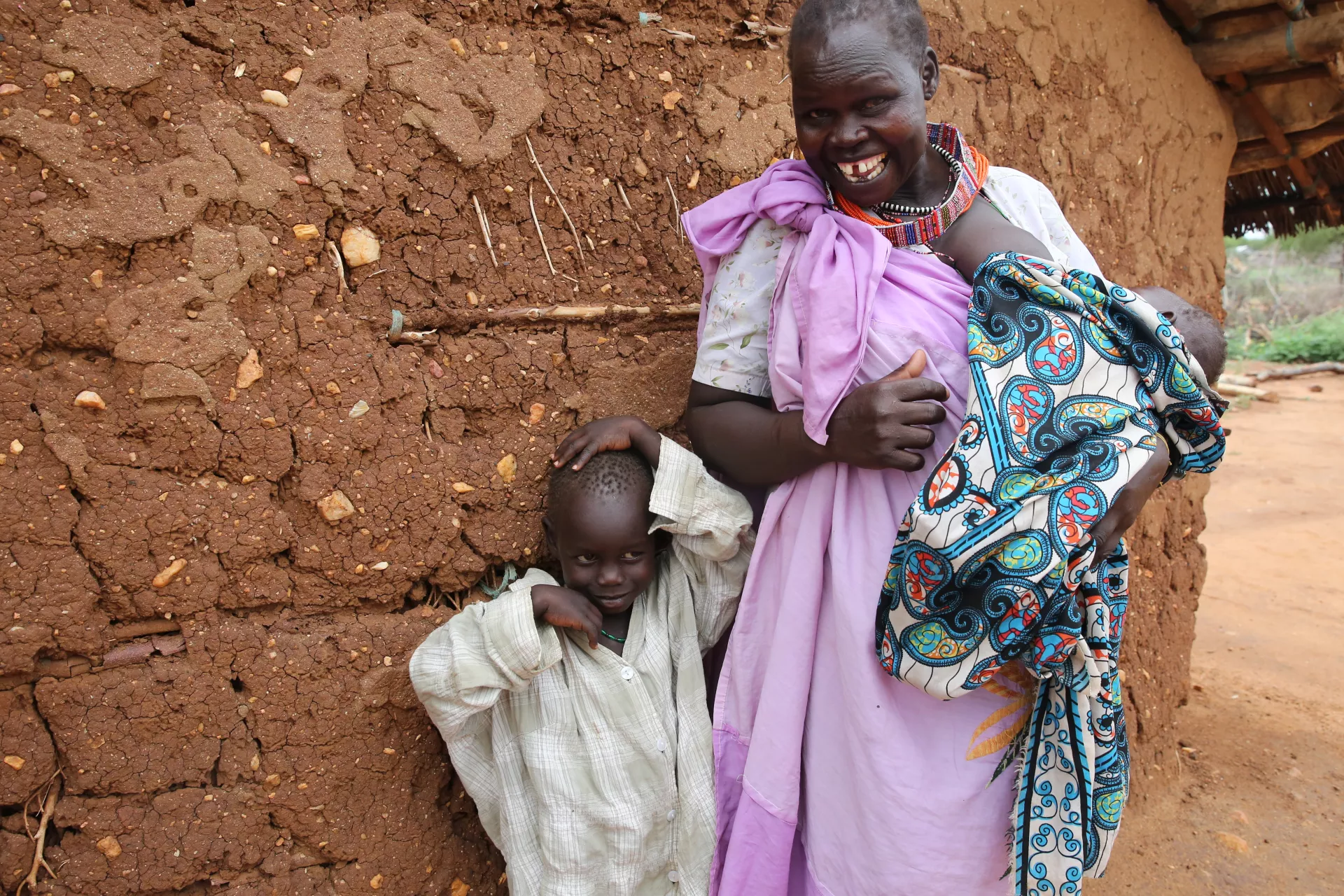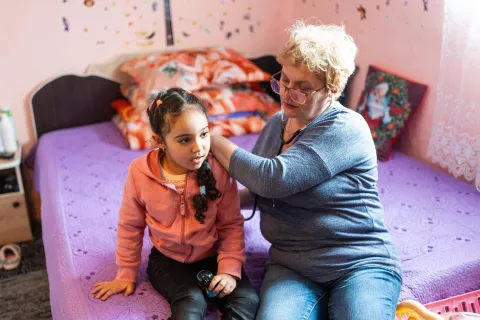Mobilizing communities to fight a severe cholera outbreak in South Sudan
In a country with high malnutrition rates, the outbreak poses a particularly dire threat to children

KAPOETA, South Sudan, 15 August 2017 – It started around 6 p.m. one evening, shortly after supper. Regina Lotem had been warned about it for weeks and even though she tried to prevent it, she knew it might happen. Her five-year-old son Juma had been vomiting and had severe diarrhoea for several hours. If not treated properly, she knew his life could be at risk.
And so Regina rushed little Juma to the cholera treatment centre in her town of Na Pot Pot, South Sudan.
“When I thought my child was going to die I wanted to die. I was so scared,” says Regina holding little Juma close to her.
What followed were several grueling days of treatment for Juma and little sleep for Regina, who stayed with him as much as she could. Juma managed to recover, but he was one of the lucky ones.
South Sudan is in the middle of the most severe and protracted cholera outbreak in its history. Since the outbreak began in June 2016, a total of 17,242 cases and 320 deaths have been reported. In 2017 alone there have been 13,880 cases and 243 deaths. Nearly half of all reported cases are children aged up to 14 years.
The outbreak hit Regina’s village and the surrounding Greater Kapoeta region in May this year, and has since escalated to over 4,042 reported cases as of 21 July.
In a country with malnutrition rates at an all-time high, a cholera outbreak poses a particularly dire threat to children. Malnourished children are highly susceptible to cholera and other diseases because of their weakened immune systems, and those who do contract cholera can quickly become even more malnourished. This creates a vicious cycle of disease and malnutrition that is deadly for children.
UNICEF is working with partners to provide training and support for activities that engage and educate communities about cholera prevention and treatment. Trained staff go to affected areas to spread the word through community theatre, door-to-door visits and meetings with community leaders. Radio jingles and interviews on stations across the country have already reached 1.4 million people, and a telephone hotline helps answer individual concerns and queries about cholera.

UNICEF also supports the cholera treatment centre in Na Pot Pot with lifesaving supplies and infection control materials, including medicine, gloves, soap and chlorine. Cholera prevention is reinforced at the centre for both patients and family members, who can sit in on education talks during treatment.
Nurse Tom Omuut, who runs the cholera treatment centre, says there have been about 1,500 cases since the outbreak in May, but educating the community about treatment and prevention has led to a marked decrease.
Regina confirms this, crediting community engagement activities as the reason she was aware of what cholera was and knew some ways to prevent it. She says had she not known about the disease beforehand she may have not acted so quickly to get her son to a treatment centre.
Despite the impact community engagement has made in Na Pot Pot, new cholera cases are still being reported in other parts of Kapoeta. Marine Mosier, a UNICEF Emergency Specialist working on the cholera response, says the key is to make sure these efforts are continued after the emergency phase is over. Partners who are brought in as part of the initial response are unable to remain long-term, making UNICEF’s work with the Government and national organizations even more crucial, particularly for preventative measures like health promotion and education.
As for Regina, she says she’s hopeful the cholera cases in her community will remain low. She is doing her part by telling friends and family about cholera prevention. Every day she makes sure that she washes utensils properly and takes other preventative measures, so that none of her children will have to go through the experience of cholera again.
UNICEF, the Ministry of Health field staff, and 11 national partners are working together to respond to the current cholera outbreak in all affected states. In addition to community engagement and education activities, UNICEF is supporting a massive cholera immunization campaign, along with the World Health Organization and other partners. A total of 384,971 out of a targeted 606,199 people aged one year and above have been immunized so far in 2017. UNICEF also provides the majority of medical supplies for treating and managing cholera cases throughout the country.

